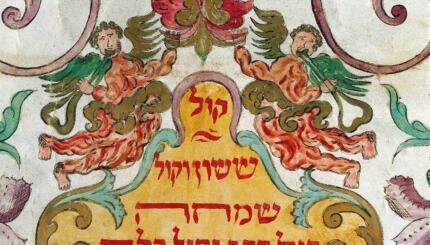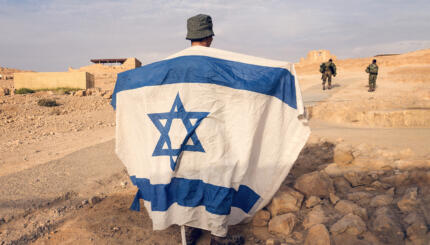I’ve often been asked to join a minyan, a quorum of ten. But I am never asked to join “so we can say Barekhu” (a prayer only recited with a minyan) or “so we can do a full Amidah” (also done only with a minyan.) It is invariably so someone can say Kaddish, the prayer for the dead.
The obvious reason is to come to the aid of one who grieves. Saying Kaddish is usually a more urgent emotional need than other prayers. However, we might also see it as a tribute to the one who has died.
When we join together for a minyan we declare that even though we may not know this person, he or she was a part of the Jewish people. Each loss is a loss to all. We gather to let the mourners know that we too mourn, not as individuals, but as Klal Yisrael, the people of Israel. We pray that the bereaved will be comforted “among the mourners of Zion and Jerusalem.” No one weeps alone. To rephrase the poet, every Jew’s death diminishes the Jewish people. Join a minyan and share in the solidarity of grief.
Rabbi David Wolpe’s musings are shared in My Jewish Learning’s Shabbat newsletter, Recharge, a weekly collection of readings to refresh your soul. Sign up to receive the newsletter.
With your help, My Jewish Learning can provide endless opportunities for learning, connection and discovery.



